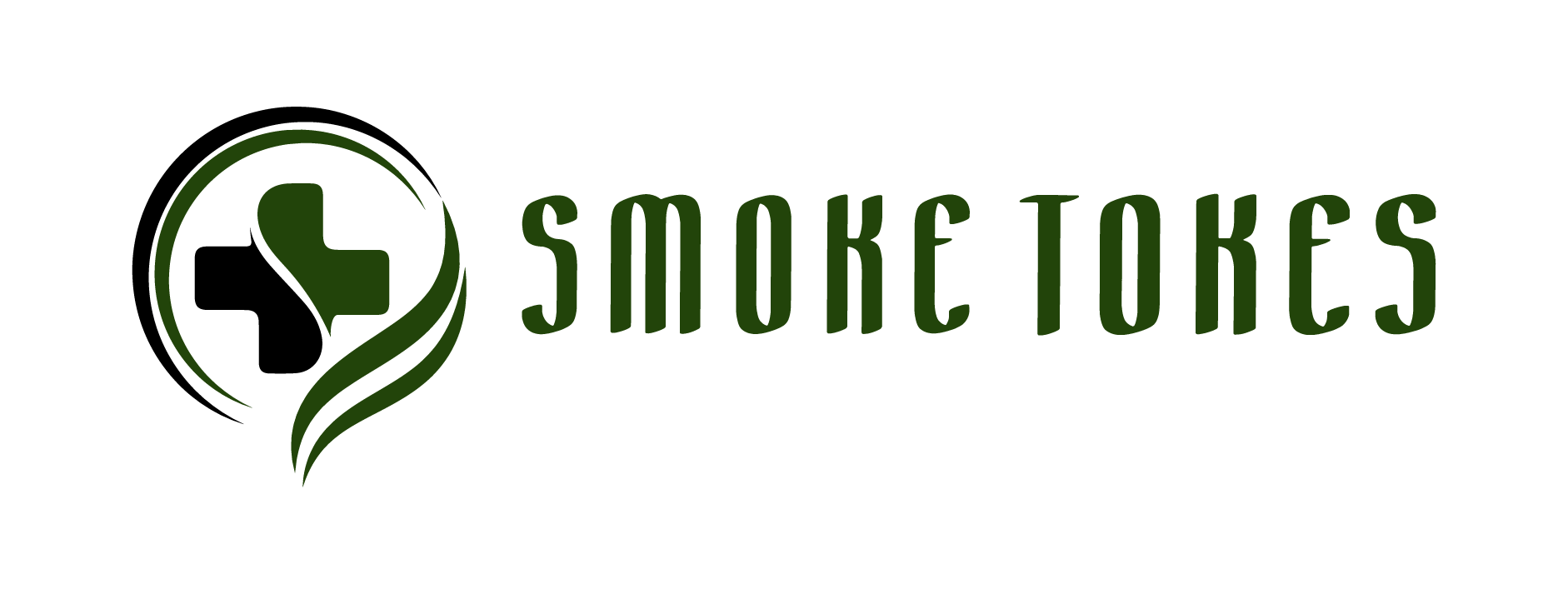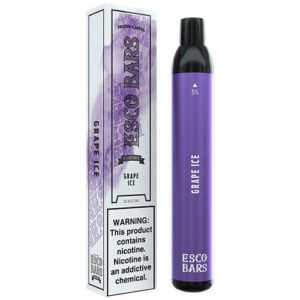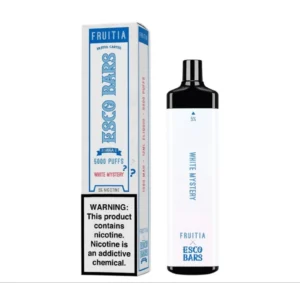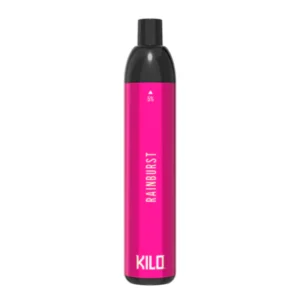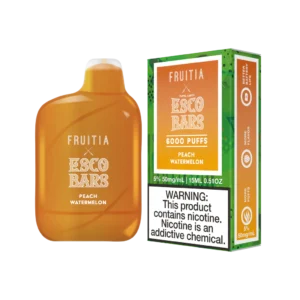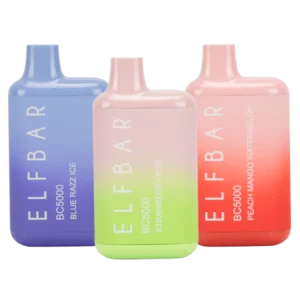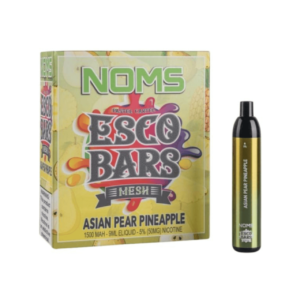

Is THCA the Same as Delta 9? A Clear Guide
No, THCA and Delta 9 THC are definitely not the same thing. Think of THCA as the raw, non-intoxicating compound found in freshly harvested cannabis plants. Delta 9 THC, on the other hand, is what THCA becomes after you add heat. It’s the famous cannabinoid celebrated for creating that classic cannabis high.
The entire difference boils down to a single, transformative action: applying heat.
THCA vs Delta 9: The Core Difference
The relationship between THCA (Tetrahydrocannabinolic Acid) and Delta 9 THC is all about a fascinating transformation. Every cannabis plant is genetically programmed to produce THCA, not Delta 9. This acidic cannabinoid is abundant in raw flower, but if you were to simply eat a fresh nug, you wouldn’t feel any intoxicating effects.
That all changes with a process called decarboxylation.
When you introduce heat—whether from the flicker of a lighter, the warm glow of a vape coil, or the gentle heat of an oven—a crucial chemical reaction unfolds. The heat strips a carboxyl acid group from the THCA molecule, instantly converting it into the psychoactive Delta 9 THC. This new, sleeker structure is what allows it to bind with our body’s cannabinoid receptors and produce its well-known effects.
To get a better sense of how vaping masterfully uses this exact principle, our ultimate CBD vaping guide for beginners is a great resource.
So, without heat, THCA remains in its dormant state. But once heat is applied, it unlocks its potential and becomes the compound everyone recognizes. Understanding this is key to figuring out effects, legality, and which product is right for you.
To simplify this, let’s break down the fundamental differences in a quick-reference table.
THCA vs Delta 9 At a Glance
This table gives you a snapshot of the core differences between THCA in its natural state and the Delta 9 THC it becomes after being heated.
| Attribute | THCA (Raw State) | Delta 9 THC (After Heating) |
| Psychoactivity | Non-psychoactive; does not produce a “high.” | Psychoactive; responsible for euphoric effects. |
| Activation | Requires heat (decarboxylation) to become active. | Already in its active, potent form. |
| Common Form | Found in raw, unheated cannabis flower and concentrates. | The result of smoking, vaping, or baking cannabis. |
| Chemical Structure | Contains an extra carboxyl acid group. | Lacks the carboxyl group, allowing it to bind to receptors. |
As you can see, the only thing separating these two compounds is a bit of heat and a small but significant change in their molecular structure.
The Chemical Difference That Changes Everything
So, is THCA the same as Delta 9? Not quite. On a molecular level, they’re practically twins, but one tiny structural detail completely changes how they affect you. Imagine THCA as a key with a small protective cover on it. That “cover” is an extra string of atoms known as a carboxyl group.
Because of this extra group, the THCA molecule is physically too bulky. It just can’t fit into the CB1 receptors in your brain—the very same receptors that Delta 9 THC connects with to create its famous high. This is precisely why you can eat a raw cannabis nug and feel nothing intoxicating.
The Magic of Decarboxylation
This is where a little bit of heat comes into play. The process is called decarboxylation, and it happens any time you apply heat to cannabis—lighting a joint, firing up a vape, or baking flower to make edibles. The heat snaps off that extra carboxyl group, which then gets released as carbon dioxide.
In that instant, the clunky THCA molecule becomes the lean, psychoactive Delta 9 THC. With its “protective cover” gone, the molecule is now the perfect shape to bind with your brain’s cannabinoid receptors, unlocking the powerful effects we associate with cannabis.
This side-by-side comparison shows you exactly what that molecular change looks like.
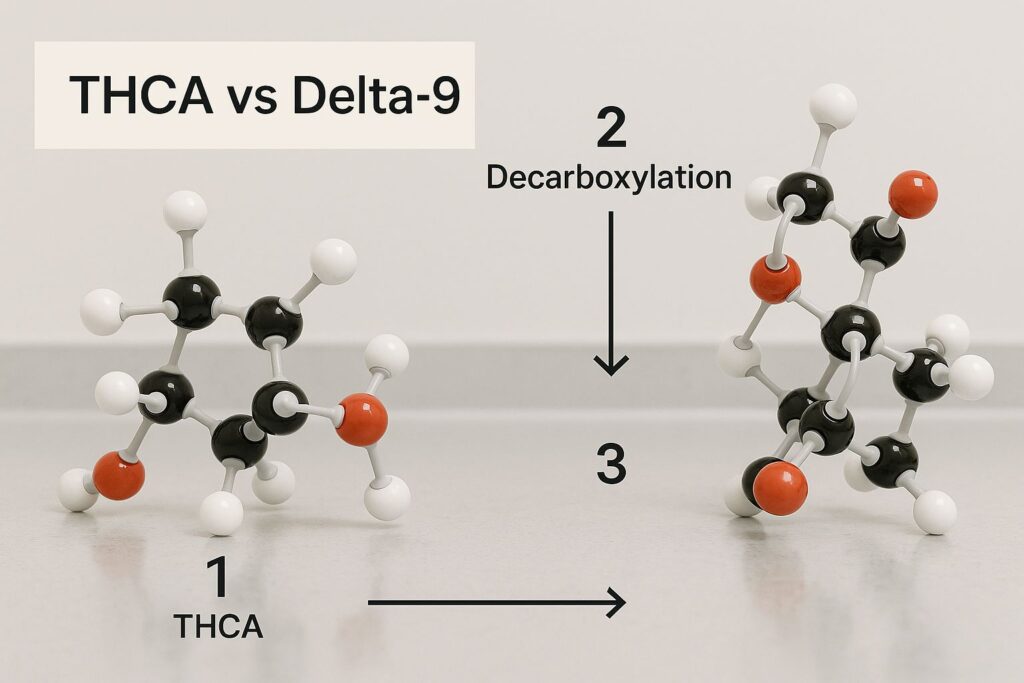
As you can see, stripping away that one molecular group completely alters the compound’s potential. THCA (tetrahydrocannabinolic acid) and Delta-9 THC are distinct cannabinoids, and this structural difference is the whole reason one is psychoactive and the other isn’t. While raw THCA can’t bind to your receptors, Delta-9 THC fits like a glove to produce its euphoric effects.
This simple chemical reaction is the bridge between potential and potency.
Key Takeaway: Heat is the catalyst. It removes a specific part of the THCA molecule, changing its shape and turning it into psychoactive Delta 9 THC. Without heat, there is no high.
Comparing Effects: Potential vs. Potency
So, we’ve covered the science. But what does this chemical switch actually mean for you? The distinction between consuming raw THCA and activated Delta-9 is night and day. Think of it as choosing between a subtle wellness supplement and a potent, mind-altering experience.
Someone curious about cannabis but wanting to skip the “high” might toss raw, THCA-rich flower into their morning smoothie. In its raw state, THCA is completely non-intoxicating. While research is still emerging, many people are exploring its potential wellness properties without worrying about any cognitive impairment. As always, it’s smart to consult a healthcare professional before adding anything new to your health regimen.
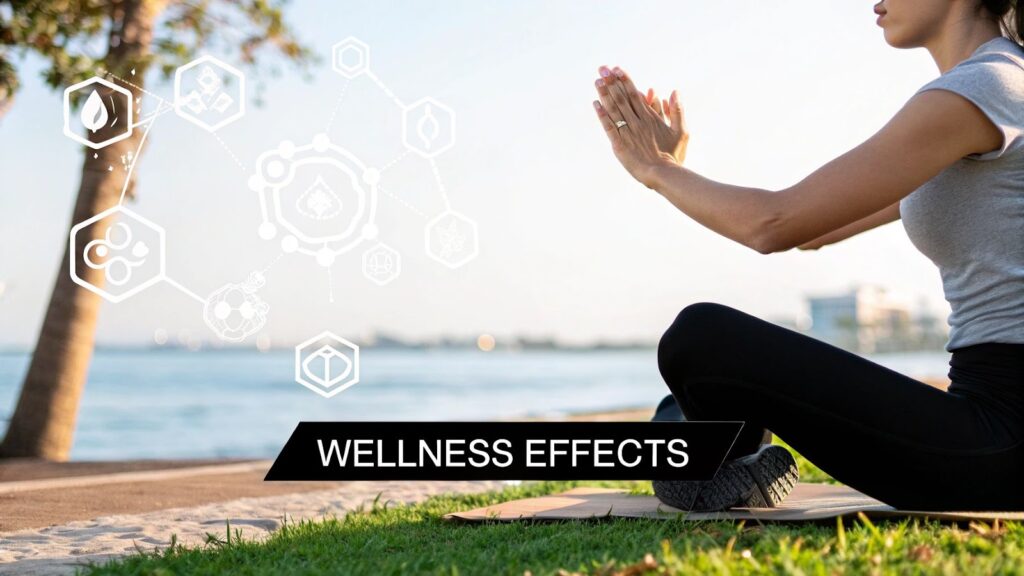
From Subtle Wellness to Potent Euphoria
Now, if you are looking for that classic euphoric, sensory-shifting experience cannabis is famous for, you’re really looking for Delta-9 THC. This is exactly what you get the moment you light up a joint or hit a vape pen filled with THCA concentrate. Heat is the trigger, instantly converting THCA and unlocking effects that can span from deep, couch-locking relaxation to a burst of creative inspiration.
It’s this powerful effect that makes smoking or vaping a go-to for unwinding after a long day. If you’re interested in learning more about how vaping can play a role in relaxation, our article on CBD vaping and mental health dives deeper into that topic. In the end, it’s not about which compound is “better.” It’s about what you want to feel.
The choice between THCA and Delta-9 boils down to one simple question: Are you looking for a non-psychoactive wellness boost or a classic, potent high? The answer tells you whether to heat it or not.
Let’s break it down one more time. The key is how you plan to use it:
- Raw THCA: Eaten or juiced raw (no heat) for potential wellness benefits without the high.
- Heated THCA (becomes Delta-9): Smoked, vaped, or cooked to activate its psychoactive, euphoric effects.
Getting this fundamental difference down helps you walk into any dispensary with confidence, knowing exactly what you need to get the experience you’re after.
Legal Status: A Tale of Two Cannabinoids
When we talk about the legal differences between THCA and Delta-9, things get complicated—fast. The entire situation hinges on the 2018 Farm Bill, a piece of federal law that changed everything.
This bill legalized hemp by defining it as any cannabis plant with less than 0.3% Delta-9 THC by dry weight. Notice what it doesn’t mention? THCA.
This technicality created a massive gray area. Since raw cannabis flower is naturally packed with THCA but very low in actual Delta-9, these products can often be sold as legal hemp. It’s the reason you see high-THCA flower and vapes available online and in stores, even in places where traditional cannabis is illegal.
The Move Toward “Total THC”
But the legal landscape is always evolving. To close this so-called “loophole,” many states are now shifting their focus to a “total THC” testing standard. This approach doesn’t just look at the Delta-9 that’s already there; it calculates the potential Delta-9 that will be created once the THCA is heated.
The math for this is straightforward: Total THC = (%THCA x 0.877) + %Delta-9 THC.
If that final number comes out above the 0.3% threshold, the product is classified as illegal marijuana under that state’s laws—no matter how little Delta-9 it started with.
Key Takeaway: A THCA product’s legality boils down to one simple question: does your state test for just Delta-9 THC, or does it test for “total THC”? Always, always check your local regulations before buying.
The legal line between hemp and marijuana in major markets like the United States is drawn specifically at Delta-9 THC concentration, not just the presence of THCA. While the 2018 U.S. Farm Bill set the 0.3% Delta-9 THC limit, regulators are increasingly looking at the THCA that converts into Delta-9 to get the full picture.
Staying on top of these legal details is absolutely critical for making informed and compliant choices. It can feel like a maze, which really underscores the need for personal responsibility. For those exploring recovery, a full understanding of cannabis and CBD is just as vital, a topic we cover in our guide to CBD vaping and addiction recovery.
How to Choose Safe and Effective Products
When you’re shopping for THCA and Delta-9, it can feel like navigating a maze. With a flood of options out there—from fragrant flower to discreet vapes—how do you know you’re getting something that’s both safe and actually what the label says it is? The single most important tool at your disposal is the Certificate of Analysis (COA).
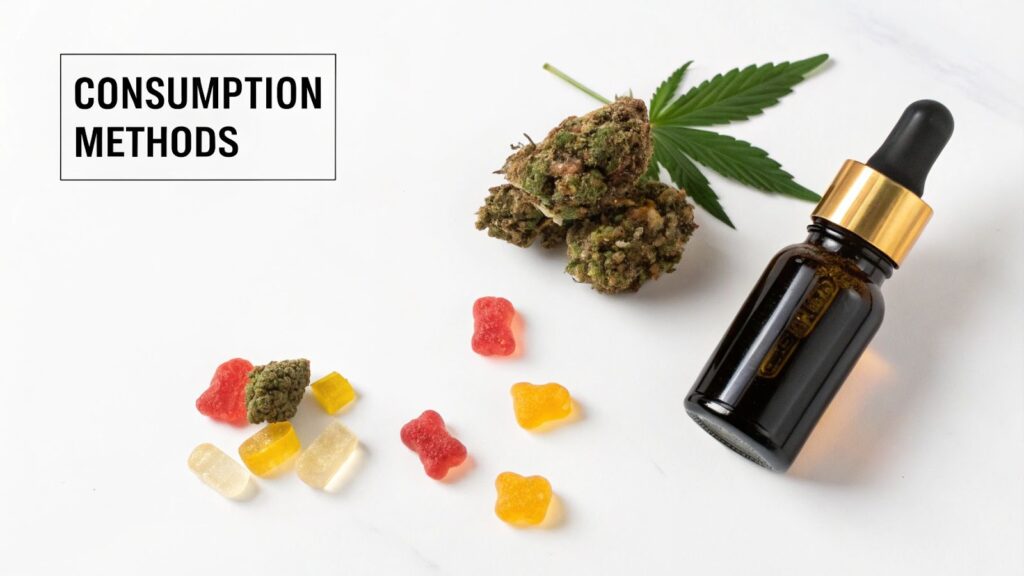
Think of a COA as a product’s report card. It’s a document from an independent, third-party lab that breaks down exactly what’s inside. It confirms the cannabinoid percentages (so you know you’re getting the right amount of THCA or Delta-9) and, just as importantly, screens for unwanted contaminants like pesticides, heavy metals, or residual solvents.
Frankly, if a brand can’t or won’t provide a recent COA for their products, that’s a huge red flag. Just walk away.
Verifying Labels and Purity
Here’s the hard truth: inaccurate labeling is a real problem in this industry. A 2023 study on hemp-derived Delta-9 products was pretty eye-opening. While most stayed under the legal THC limit, a shocking 66% were off from their labeled dosage by more than 10%. On top of that, about half of them were created by chemically converting CBD, which can leave you wondering about purity.
This is precisely why the COA is non-negotiable. It’s the only real way to cut through the marketing fluff and verify that what’s on the package is what’s in the product. It puts the power back in your hands.
Knowing how to spot quality and stay safe is especially vital if you’re using inhalable products. For more detailed advice, our guide on how to vape safely offers some great tips to make sure your experience is always a good one.
Finding Quality Products You Can Trust
So, you’ve got the rundown on THCA versus Delta 9. The final piece of the puzzle is actually finding a product that’s safe, legal, and does what it says it will. This is where choosing a retailer you can truly trust makes all the difference.
Walking into a reputable shop isn’t just about buying something; it’s about getting straight answers from people who are passionate about their products. You get to talk to real experts who know their stuff. They can break down a complex lab report, point you to the right product for the experience you’re after, and clear up any lingering questions. That kind of face-to-face guidance is invaluable in a market that can be confusing, to say the least.
Cutting through the noise and separating truth from fiction is always a challenge, a theme we dive into when we bust common CBD vaping myths and facts.
We’d love for you to stop by one of our locations. Come check out our hand-picked selection of innovative products and let our team help you find exactly what you’re looking for.
Got Questions? We’ve Got Answers
The world of cannabinoids can be a bit confusing, especially with similar-sounding compounds like THCA and Delta 9. Let’s break down some of the most common questions people ask so you can feel completely clear about what you’re choosing.
Will Using a THCA Product Make Me Fail a Drug Test?
Yes, you almost certainly will. It’s a common misconception, but standard drug tests aren’t looking for THCA. They’re designed to screen for THC metabolites—the leftovers your body creates after processing Delta 9 THC.
When you smoke, vape, or even just let THCA sit for a long time, it converts into Delta 9. That means your body will process it as regular THC, leading to a positive test. If you’re subject to any kind of drug screening, it’s best to steer clear of all THCA products.
Is THCA Legal Everywhere in the United States?
No, and this is where it gets tricky. The 2018 Farm Bill created a legal space for hemp products with less than 0.3% Delta 9 THC, which put THCA in a legal gray area. However, many states have since caught on and passed their own “total THC” laws.
These laws look at the potential Delta 9 THC that can be created when THCA is heated. A product that’s legal on a federal level might be illegal in your state. You absolutely have to check your local and state regulations before buying or carrying any THCA products.
The question “Is THCA the same as Delta 9?” gets a different answer depending on who you ask. Chemically, they’re distinct. But in the eyes of many state laws, their potential to become the same thing makes them equally regulated.
Can You Eat Raw THCA Flower for Benefits?
You sure can. Eating raw cannabis, like adding THCA flower to a smoothie or juice, gives you the cannabinoid without the high. Since there’s no heat involved, the THCA doesn’t convert to psychoactive Delta 9 THC.
People who use raw THCA are often looking for its potential non-intoxicating wellness properties. As with any supplement, it’s a good idea to talk with a healthcare professional before making it a part of your routine.
What Is the Best Way to Convert THCA to Delta 9 THC?
Heat is the magic ingredient here—it’s what kickstarts the decarboxylation process. The “best” method really comes down to what you’re trying to achieve.
Baking: If you’re making edibles, this is the way to go. You’ll want to bake the flower at a low temperature first to convert all the THCA, then infuse it into butter or oil for edibles with consistent potency.
Smoking or Dabbing: This is the fastest way. It delivers an almost instant conversion and immediate effects.
Vaping: This innovative method gives you much better temperature control. This helps preserve the terpenes (which provide flavor and aroma) and usually results in a smoother, more flavorful experience.
At Smoke Tokes CBD and Vape Shops, our team is always ready to help you sort through these details in person. Stop by one of our Texas locations for trusted, lab-tested products and the kind of expert advice you can count on. Learn more and find a store near you at https://smoketokescbd.com.
Nicotine is an addictive chemical. Content intended for adults 21+.
